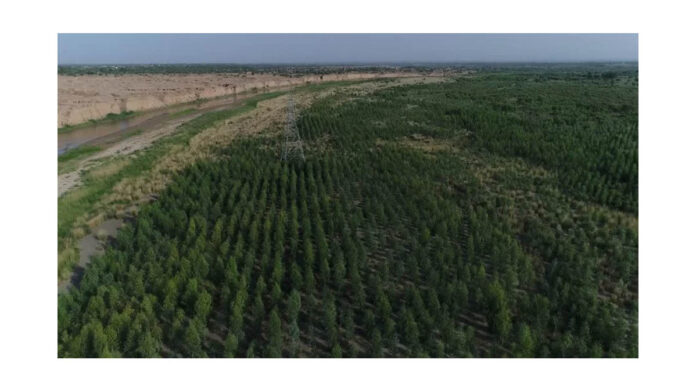Islamabad: Pakistan will ultimately need almost $2.5 billion to achieve the target of tree plantation under its ambitious Ten Billion Tree Tsunami Programme in the next ten years.
Pakistan needs $2.5b to pursue green initiatives in next decade
By Our CorrespondentJanuary 27, 2022
Pakistan needs $2.5b to pursue green initiatives in next decade
Islamabad: Pakistan will ultimately need almost $2.5 billion to achieve the target of tree plantation under its ambitious Ten Billion Tree Tsunami Programme in the next ten years.
According to the details, the government has been spending money on tree plantation drives but now it needs the support of the international community to carry out its green initiatives.
An official said that the government is currently using its own resources, but there is a need for the international community to make investments in the green initiatives launched by Prime Minister Imran Khan.
Read also : Pakistan needs to put ‘economic house in order’, says Qureshi
“The G-20 Group agreed for debt service suspension for countries that are investing in nature. Pakistan is among those countries that are spending money on nature-based solutions to cope with the negative impacts of climate change,” he said.
It is pertinent to mention here that Pakistan is going to launch bonds to attract foreign investment in green initiatives introduced by the government. The government intends to use green bonds as a fresh funding source that will allow it to finance projects in areas such as clean energy, green buildings, and sustainable transportation.
The rich countries have made pledges to provide financial assistance for the green initiatives in the developing countries. Now there is a need that these countries should take practical steps and help countries like Pakistan to pursue their green initiatives.
Special Assistant to the Prime Minister on Climate Change Malik Amin Aslam has said World Bank has estimated that tree plantation projects including the Ten Billion Trees Tsunami programme would be worth $500 million by 2050.

